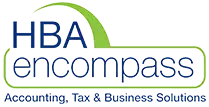Hi there, Victoria from HBA Encompass. And today I want to talk about the cash flow cycle of your business. Now, it’s not something a lot of people think about. But the cash flow cycle is the time it takes from the first time you start work on a job or a project to the time you actually get paid. Now the shorter you can make this cycle, the better the cash flow is going to be in your business. So let me talk about our business first, and then I’ll explain how it works for other industries. So in our industry, accounting, we have a customer or a client who comes in and says Victoria, can you do my tax work? And I say, Sure, so from that day, anything that is being done is incurring costs. So if I’ve got staff working on that job, or me reviewing a job, then these costs that are incurred. Once the job is complete, then the client is invoiced, then there’s a gap from when the client is invoiced to when the client pays and trading terms are important, the smaller you can make them, the better. Internally here, we often have where we ask clients for 50%, up front and 50% on completion of the job, or we have seven day trading terms. Some of the bigger businesses around town may have a 30 day plus end of month trading term. But it means that you’re not going to get paid for a long time. So then if you tack on late payers, you can see that the time from when you first started work to the time you get paid, could be really long. So let’s look at construction, a builder. So I go to him and say I would like to build a house and they say fine, I’ll take a deposit. And then they order materials, they pour slabs, they do whatever, and then they get another payment for me. So from the time of the first deposit to the time of the next project payment, they are forking out expenses is whether they are the wages or subbies or materials. And hopefully the amount of the deposit covers what’s paid, sometimes it doesn’t. And then you have to wait for the next down payment to do the next bit of work, and the next down payment and the next down payment. So the longer the project takes, the longer it’s going to take for you to get paid for the end result. And then if there’s complications or arguments or whatever else that time can drag out, and quite often in construction is that last payment that’s got the profitability for the project in it. So the quicker that we can actually get from start to finish in any job and the quicker that we can get paid, the better your cash flow is. Retail is a bit different, it’s actually the opposite, or may be the opposite. Because you can buy stock, stock arrives, you’ve got perhaps 30 days to pay for that stock. If you can sell that stock within the 30 days, you’ve got the cash there to pay for it. But you don’t always sell it in that time frame. So although you get paid up front for the stock that you’re selling, there is still a cash flow cycle because you’ve got bills that need to be paid. Sometimes before the stock is paid. So you started getting the stock is paid for. So you need to consider that for your business. And that’s where cash flow comes in, cash flow projections are amazing to be able to look at what you’ve got coming up, when you think it’s going to come in, what’s going out and where your bank balances are going to be. So we do cash flow projections all the time for clients, we can do them in a spreadsheet, we can do them in other software, but if you’d like some help with that or like to know more, please contact the Office at HBA Encompass 54 447094 or go on to our website www.hbaencompass.com.au and book an appointment with myself or Daren and we can work through it with you. So here’s to helping you reduce the time and your cash flow cycle.
HBAE Cashflow Cycle
Speak With An Expert
Complete the form below and one of our expert financial strategists will phone you!
100% Privacy Guaranteed!
Recent Posts
- Trust vs Company: Which Is Better for Your Growing Business?
- Division 7A Loans: The Key to Reducing Your Trust’s Tax Burden
- New Trust Distribution Rules: How They Affect Your Tax Strategy
- New Tax Rules for Trust Distributions: What You Need to Know
- Selling Your Business: How to Minimise Capital Gains Tax

